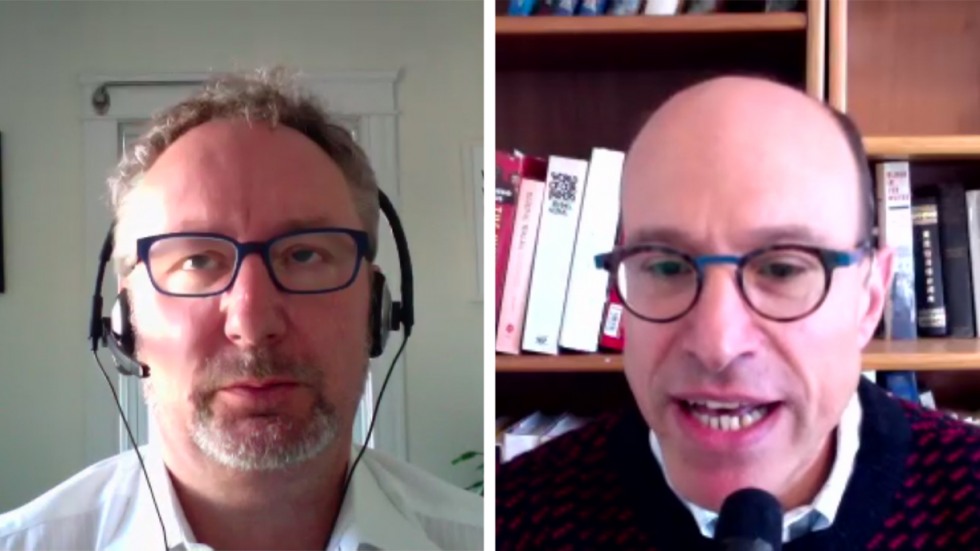PROVIDENCE, R.I. [Brown University] — As the hospitality and service industries remain largely shuttered in response to the spread of COVID-19, and as the U.S. government prepares to cut financial relief checks for American households, two faculty experts at Brown University came together on Tuesday, March 31, to discuss the potential long- and short-term economic implications of the worldwide pandemic.
Leading the virtual conversation, and later a Q&A with members of the Brown and Providence communities, was Edward Steinfeld, director of the Watson Institute for International and Public Affairs, and Mark Blyth, director of the Rhodes Center for International Economics and Finance at Brown. The two scholars compared different countries’ reactions to the economic turbulence that COVID-19 has caused and made prognoses on the long-term economic effects of the crisis, both domestically and globally.
“If you had said to me just 10 days ago that a Republican Senate would pass a $2 trillion stimulus package... I would have said, ‘No, odds against that,’” Blyth said. The fact that the deeply divided U.S. Senate came to a consensus on something so major, he added, demonstrates “how serious this crisis is in economic terms.”
The emergency legislation enacted by Congress will send money directly to most Americans, regardless of their employment status. Issuing checks may be reasonably effective in protecting the U.S. economy in the short term, Blyth said, but in the event that the virus continues to spread rapidly for more than two or three months, it will not provide enough financial protection.
Steinfeld — a professor of China studies and of international and public affairs — noted that looking at China’s current economic situation may give Americans a peek into what to expect in the weeks to come.
“What we’re seeing in China is, much of society has returned to normal in terms of social interactions, but business hasn’t returned to normal,” Steinfeld said. “Even though the public health situation is much better and the state of anxiety much lower, the ability of the economy to move into full operation still seems in question. The duration of the crisis is as yet unknown.”
The full conversation, which covers the national debt, the short-term prognosis for the restaurant and hospitality industries and the potential rise of cryptocurrency in this uncertain time, is available on YouTube.
